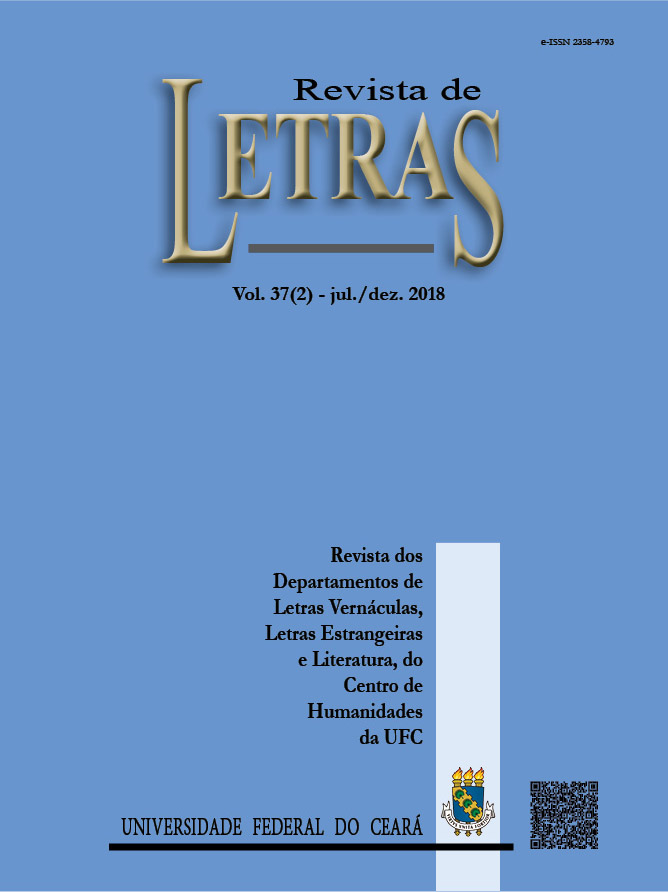ECOLINGUISTICS: ITS ORIGIN AND ITS EVOLUTION IN THE 21ST CENTURY
Resumo
Language was first linked with ecology by Carl and Florence Voegelin (VOEGELIN, 1964) and by Einar Haugen, an American scholar of Norwegian descent (1972). Haugen’s comparison between biological and linguistic diversity and the interaction between languages are still topics of ecolinguistic research. However, when in 1990, Michael Halliday gave his talk “New Ways of Meaning: the Challenge to Applied Linguistics”, a new research area was opened, with such topics as the role of language concerning the (biological) environment, the discourse about climate change,
‘growthism’ and the use of animals by humans. This paper will also deal with the way in which ‘language and ecology’ (now called ecolinguistics) took root in a great number of countries, among them Denmark, Germany, Austria, Australia and Brazil, where a researcher at the Universidade de Brasília made ecolinguistic ideas his own and developed them further (COUTO, 2007). This founder of Brazilian Ecolinguistics was also the mastermind behind creating an internet platform for Ecolinguistics, which is now managed by Arran Stibbe under the name ‘The International Ecolinguistics Association’. Recent approaches to language ecology have become known under
such titles as ‘Ecosystemic Linguistics’, ‘Positive Discourse Analysis’ and the study of ‘greenwashing’ in advertising. It is justified to speak of an ‘evolutionary’ development of Ecolinguistics in the 21st century. This evolution of Ecolinguistics will also embrace discourse connected with images and the role of ecological discourse on the internet. In the near future, we will also find Ecolinguists looking at language on the meta-level, on which they will enquire how Ecolinguistics can have an effect on human thought and action. Ecolinguistics will thus become the science of creating peace through language – a topic which another Brazilian scholar has already made his own (MATOS, 2017).
Keywords: Ecology. Ecosystem. Diversity. Growthism. Evolution. Brazilian ecolinguistics.
Multimodality. Meta-level. Golden Age. Peace.
Downloads
Downloads
Publicado
Como Citar
Edição
Seção
Licença
Autores que publicam nesta revista concordam com os seguintes termos:- Autores mantêm os direitos autorais e concedem à revista o direito de primeira publicação, com o trabalho simultaneamente licenciado sob a Licença Creative Commons Attribution que permite o compartilhamento do trabalho com reconhecimento da autoria e publicação inicial nesta revista.
- Autores têm autorização para assumir contratos adicionais separadamente, para distribuição não-exclusiva da versão do trabalho publicada nesta revista (ex.: publicar em repositório institucional ou como capítulo de livro), com reconhecimento de autoria e publicação inicial nesta revista.
- Autores têm permissão e são estimulados a publicar e distribuir seu trabalho online (ex.: em repositórios institucionais ou na sua página pessoal) a qualquer ponto antes ou durante o processo editorial, já que isso pode gerar alterações produtivas, bem como aumentar o impacto e a citação do trabalho publicado (Veja O Efeito do Acesso Livre).

.png)





.png)
